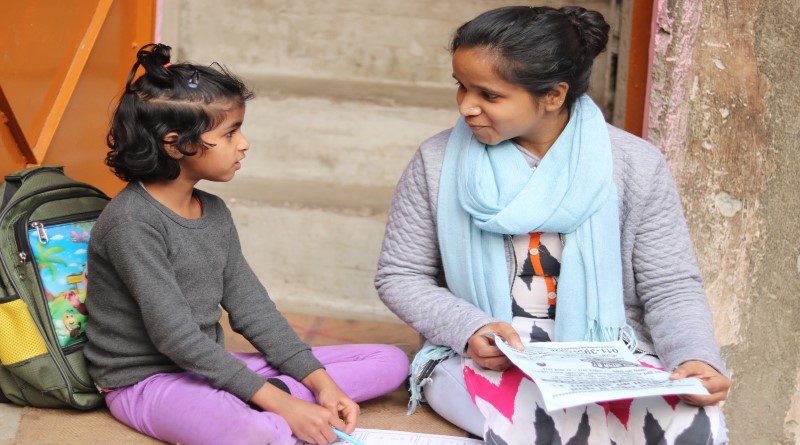Karnataka’s RTE Journey: Working Together for Social Inclusion

Bangalore: Karnataka has long stood at the forefront of implementing Section 12(1)(c) of the Right to Education (RTE) Act, which mandates a 25% reservation in private unaided schools for children from disadvantaged backgrounds. Between 2012 and 2019, the state emerged as a national leader in equitable access to education through its pioneering digital systems and targeted social inclusion strategies.
Through its transparent online admission platform and category-wise micro-reservation – 7.5% for Scheduled Castes, 1.5% for Scheduled Tribes, and 16% for other backwards and disadvantaged groups—Karnataka has enabled over 6.4 lakh children from diverse socioeconomic backgrounds to access high-quality private schooling during this period. These efforts not only broadened educational opportunities but also laid a robust foundation for inclusive growth and community integration.
Changing Policies, Shrinking Opportunities
The 2019 amendment to Rule 4 of the Karnataka RTE Rules made access to this provision conditional upon the non-availability of a government or aided school within a 1 km radius. This change has had a significant impact on the program’s reach:
- Before the amendment (2018–19): 1,16,000+ children were admitted under RTE Section 12(1)(c)
- After the amendment (2019–20): The number dropped to 1,795
- Current scenario (2023–24): Admissions stand at just 1,312
- Private school participation: Dropped from 81.2% to a mere 1.5%
These figures reflect the widening gap between policy and practice, especially for families unable to afford private education without state-supported mechanisms.
A Turning Point: Legal and Collaborative Pathways
Recent legal developments may offer guidance for stakeholders concerned about equitable access. In July 2024, the Bombay High Court addressed a similar “neighbourhood clause” in Maharashtra, and the Supreme Court subsequently upheld this ruling in August 2024, emphasising that the 25% reservation under RTE 12(1)(c) aims to create educational opportunities for children who otherwise cannot access them.
Moving forward, collaborative approaches might include:
- Engaging educators, parents, and policymakers in dialogue about implementing RTE provisions effectively
- Expanding awareness programs to ensure families understand their educational entitlements
- Developing partnerships between government and private schools to strengthen educational opportunities for all children
Transforming Children’s Futures
The numbers tell a compelling story, but it’s the children and families behind them who truly reflect the policy’s impact.
Ten-year-old Priya, a beneficiary of the RTE quota before the 2019 amendment, beams as she shares, “I love my school. I have friends from all kinds of families. My teacher says I’m good at science, and I want to be an engineer.”
Stories like P. Lakshmi’s, whose son Rahul was admitted to a private school under RTE, underscore how access to quality education can change a family’s trajectory. “He’s learning English, using computers, and dreams of becoming a doctor someday,” she says. “This opportunity wouldn’t have been possible for us otherwise.”
In contrast, Nagaraj N., a driver from Banashankari, speaks to the current challenges: “I hoped my daughter would get into a good school through the RTE quota. But there’s no private school under RTE in our area anymore. I can’t afford the fees. I don’t know what to do.”
Working Together for Children’s Futures
“Every child deserves a chance to reach their potential,” notes Shobha T., a teacher who has worked in both government and private schools. “When children from different backgrounds learn together, they all benefit. It’s about creating a more inclusive society.”
By working together—government agencies, educational institutions, community organisations, and families—Karnataka can build on its pioneering legacy in educational equity. The infrastructure and experience exist to ensure that children from all backgrounds can access quality education that helps them achieve their dreams.
As young Rahul from Lakshmi’s family puts it: “In my classroom, we’re all just students learning together. It doesn’t matter where we come from.”






магазин аккаунтов аккаунт для рекламы
магазин аккаунтов продать аккаунт
продать аккаунт https://magazin-akkauntov-online.ru/
купить аккаунт https://ploshadka-prodazha-akkauntov.ru/
профиль с подписчиками купить аккаунт
маркетплейс аккаунтов соцсетей kupit-akkaunt-top.ru/
продажа аккаунтов соцсетей маркетплейс аккаунтов
Sell Account Online Account Store
Account Trading Service Guaranteed Accounts
маркетплейс аккаунтов https://akkaunt-magazin.online/
площадка для продажи аккаунтов akkaunty-optom.live
маркетплейс аккаунтов https://online-akkaunty-magazin.xyz/
биржа аккаунтов https://akkaunty-dlya-prodazhi.pro
маркетплейс аккаунтов kupit-akkaunt.online
buy facebook ads manager https://buy-adsaccounts.work/
buy facebook account for ads buy old facebook account for ads
buy facebook account https://buy-ad-account.top/
buy facebook accounts cheap facebook ad accounts for sale